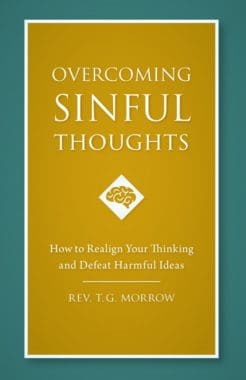“Go Ahead! Everyone Is Doing It”
“Grandpa, everyone is doing it.” This could have been a response from any young person—or anyone—regarding stealing music recordings on the Internet some years ago. But a Christian who has thought about the virtue of justice and our need to practice it would never accept such behavior. It is stealing: stealing a product provided by a musician for which he deserved a payment. When we meet the Lord, He won’t ask how many people were doing it.
This same argument might be put forth for the practice of premarital sex. It seems to be true that many people are “doing it.” However, it is also true that the divorce rate is higher for those who sleep together before marriage. Of course, the benefit of having a good marriage is in addition to that of being able to live in the state of grace and have the blessings that come with that.
Being among the majority has not historically been a sure indication of being right. How many Southerners were in favor of slavery in 1860? How many in England favored it before Wilberforce raised consciences in Parliament and it was outlawed? How many in Nazi Germany paid little attention to the genocidal atrocities of Adolf Hitler?
Human beings tend to follow the crowd, and that is not always bad. “There is a heuristic most of us use to determine what to do, think, say, and buy: the principle of social proof. To learn what is correct, we look at what other people are doing. In his bestselling book Influence: The Psychology of Persuasion, psychologist Robert Cialdini writes, ‘Whether the question is what to do with an empty popcorn box in a movie theater, how fast to drive on a certain stretch of highway, or how to eat the chicken at a dinner party, the actions of those around us will be important in defining the answer.’ Social proof is a shortcut to deciding how to act.”
Cialdini applied the crowd-following principle to reduce the stealing of wood in Arizona’s Petrified Forest National Park. Visitors at the park were greeted with signs stating, “Your heritage is being vandalized every day by theft losses of petrified wood of 14 tons a year, mostly a small piece at a time.” Cialdini had the signs removed from one path in the park to see if it made a difference. It did. The path without the sign had one-third less wood stolen than the paths with the sign. Apparently, the placard signaled visitors that taking pieces of wood was normal since so many had been doing it.
Admittedly, there can be benefits to following the crowd. If a book on a subject we are interested in is on the best-seller list, we would probably enjoy reading it. If an item is ranked in the top five in sales among different brands of a product, it’s probably pretty good.
Cialdini points out that most of us haven’t the time to learn in advance about things we buy, so we depend on popularity, and it usually works. Of course, now with the Internet, it is much easier to check on quality before we buy. If an item has received a five-star rating from hundreds of people, it is even more likely to be good than if it is merely popular. A rating of excellence is worth more than popularity.
Our subject at hand, however, is not the goodness of a product but the goodness of a behavior. That is much more critical inasmuch as it bears on our relationship with God, and our salvation. To determine good behavior, we need a reference point, and that is the Word of God and the teaching of the Church Jesus founded. Jesus is only too happy to tell us what behavior is good and what behavior is not, because He wants us to be happy. Bad behavior never brings true happiness; good behavior does.
Returning to our original example, stealing copyrighted materials may seem easy and good, but in stealing we fail in justice. Justice is one of the cardinal virtues, and is one of many virtues by which we will be judged. (We need all the virtues to enter the Kingdom of God.)
Regarding the example of premarital sex, Jesus addressed this in Sacred Scripture: “It is from within, from the human heart, that evil intentions come: fornication, theft, murder, adultery, avarice, wickedness, deceit, licentiousness, envy, slander, pride, folly. All these evil things come from within, and they defile a person” (Mark 7:21–23).
So, while popularity might be of use for us to choose a book or another item, it often will not help us to determine what is good behavior. William Penn put it well: “Wrong is wrong even if everyone is doing it; right is right even if no one is doing it.” We should keep in mind the words of our Lord: “The gate is wide and the road is easy that leads to destruction, and there are many who take it. For the gate is narrow and the road is hard that leads to [eternal] life, and there are few who find it” (Matt. 7:13–14).
+
This article is adapted from a chapter in Overcoming Sinful Thoughts by Fr. Thomas G. Morrow, which is available from Sophia Institute Press.

Art for this post: Cover and featured image used with permission.





